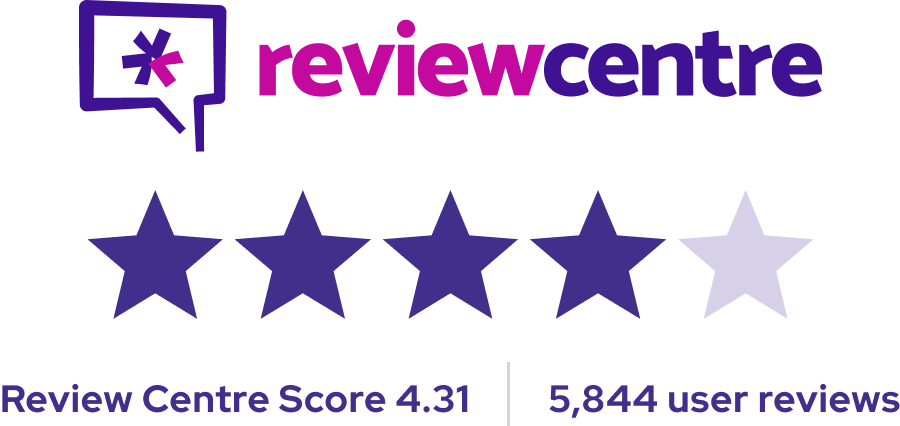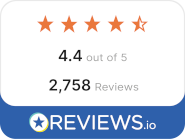More information
Houses built from non-standard materials can be harder to insure because of their increased risks
Non-standard materials can cause your premium to increase because the risks that affect the property can be greater. It is typically more difficult and costly to maintain a building of non-standard construction. This is often the case with listed buildings, where traditional methods must be carried out by a specialist tradesman to preserve the historical importance of the property.
For this reason, you will likely need to source non-standard building insurance from a specialist provider like Homeprotect. The more details that you can provide, the more likely you are to find the right nonstandard house insurance at the right price for your unique property.
Specify all of the building materials used
When asking for a non-standard construction home insurance quote, bear in mind that some concrete and prefab or prefabricated reinforced concrete (PRC) homes (such as Hawksley PRC houses) have a brick façade. You need to list all of the building materials used to be properly covered in the event of a claim. If in doubt, a qualified surveyor can help.
What materials are considered non-standard?
- Timber frames.
- Steel frames.
- Concrete.
- Corrugated iron.
- Plastic.
- Glass.
- Fibreglass.
- Asbestos.
- Flint.
- Asphalt.
- Shingle.
- Eco-friendly materials including green roofs.
- Cob, and wattle and daub.
- Prefab/HUF Haus.
- Passive houses and zero energy buildings (ZEBs).
specialist Home Insurance Reviews

Get a home insurance quote online
Get a quote online in less than 10 minutes*
What’s covered by buildings insurance?
Having buildings insurance means you won’t be out of pocket if you need to repair or rebuild your home if it’s been damaged or destroyed.
What we offer
Emergency help when you need it most
If you have a home emergency — such as a power outage, uncontrollable leak or a broken lock — our 24/7 Home Emergency cover is included as standard.
- We aim to get an engineer to you within four hours
- For serious water leaks, we’ll try to have a plumber with you in two hours
Response times may vary during extreme weather. Policy terms and claim limits apply.
5 star rated cover
Our insurance has received the highest rating from independent financial researchers, Moneyfacts.
24-month repair guarantee
All buildings work we arrange after a claim is guaranteed for two years.
Legal support when you need it
Family Legal Protection is included as standard. You’ll have access to expert telephone legal advice on personal matters under the laws of the UK and most of Europe.
What isn’t covered?
There are some things we can’t cover, including:
Gradual damage, wear and tear, or issues you knew about but didn’t fix
Faulty design, construction, or workmanship.
Damage caused by poor maintenance or neglect
Keeping your home and belongings in good condition is essential. If damage happens because of neglect or poor maintenance, your claim may be declined, and your policy could be cancelled.
BUILDINGS Insurance Cover Levels
Our buildings insurance is designed to protect your home against insured events such as fire, storm, flood, escape of water, theft, malicious damage, subsidence, landslip or heave.
Buildings cover
Protects the main structure of your home, including attached garages and conservatories, and permanent outdoor features such as patios, driveways and boundary walls.
up to £1 million
(more cover available if you need it)
Alternative accommodation
We’ll help cover the cost of temporary accommodation for you and your pets if you can’t stay in your home after an insured event — or if you’ve been advised to evacuate. If you stay with friends or family instead, we’ll cover your extra living costs.
up to £75,000
Home emergency
Covers sudden, unexpected emergencies — like an uncontrollable leak — that require immediate action to prevent damage or make your home secure. Two levels of cover are available, for different types of insured loss.
up to £500
Family legal protection
Covers legal costs relating to insured events. There must be a reasonable chance of success, and the event must happen during your policy term. Two levels of cover are available, for different types of insured loss.
up to £25,000
Trace and access
We’ll pay to detect the source of a water or oil leak, and cover the cost of reinstating floors, walls or paths that were disturbed in the process.
up to £10,000
Outbuildings cover
Covers detached garages, greenhouses, sheds, summerhouses and other outbuildings within your boundary or any communal area you’re legally responsible for.
from £20,000
Liability cover
Covers legal liability for accidental death, injury or illness to someone else, or damage to their property.
up to £5 million
Accidental damage
Optional cover for sudden, unexpected damage caused by you, a guest, a third party or wild animal — such as a broken window or spilt paint. Two levels of cover are available.
Optional
POLICY DOCUMENTS
If you’re deciding on whether to buy home insurance with us, you can use our latest policy booklets as a guide.
Existing Customer?
Your latest policy documents are available to view and download.
Your Questions Answered
An excess is the portion of a claim that you’re responsible for paying. It’s either deducted from your settlement or collected from you if we arrange a repair or replacement. You can find out what excesses you’ll need to pay by logging in to make a claim and selecting your policy in the “Check my cover” section. Your excesses are also listed in your policy documents.
There are three types of excess:
- Compulsory excess – A fixed amount that applies to most claims, based on the type of damage. If your claim includes both Buildings and Contents, a compulsory excess will apply to each.
- Special excess – A higher excess that applies to specific events like flood, escape of water, subsidence, landslip, or heave. If both Buildings and Contents are affected, only one special excess applies.
- Voluntary excess – An extra amount you choose when buying your policy to lower your premium. If your claim includes both Buildings and Contents, the voluntary excess applies to each.
- Exception: voluntary excesses do not apply to Flood Re claims.
You can find your excess amounts in your Policy Schedule or by logging in and selecting your policy in the “Check my cover” section.
Examples:
Example 1 – Claim for one type of damage
Romesh claims for accidental damage to his buildings.
- Compulsory excess: £249
- Voluntary excess: £150
Total excess: £399
Example 2 – Claim affecting both Buildings and Contents
Sam’s theft claim involves damage to both buildings and contents.
- Buildings excess: £249 compulsory + £150 voluntary
- Contents excess: £149 compulsory + £50 voluntary
Total excess: £598
Example 3 – Escape of water affecting both Buildings and Contents
Frankie’s claim is for escape of water.
Voluntary excesses: £100 for Buildings + £100 for Contents
Total excess: £700
Special excess: £500 (applies once)
Not always. Your premium will partly depend on the rebuild costs of the particular design of your home
Buildings insurance covers the structure of the home together with its fixtures and fittings: it covers the cost of repair or rebuilding after fire or weather damage for instance. Contents insurance covers the contents of your home, the possessions you would take with you if you moved house.
There are a huge number of non-standard materials being used in modern constructions, such as asphalt, concrete, timber, glass and steel. Older properties are also made with non-standard materials like wattle and daub or flint. When in doubt, check with a builder, surveyor or your home insurance provider.
If you purchased the property in the last 5 years your homebuyers survey may include the rebuild cost. However if you purchased the property more than 5 years ago you will need to get an up to date assessment.
If your home is of standard construction (normally brick walls and tile roof), not a listed building and not built before 1720 you can use the free online BCIS Rebuild calculator.
If your home is built with non-standard construction materials, or it’s a Listed Building or it was built before 1720, you will need to consult a Chartered surveyor to provide you with an accurate rebuild cost.
Prefer to SPEAK WITH us?
Our insurance experts are on hand if you have any questions.





